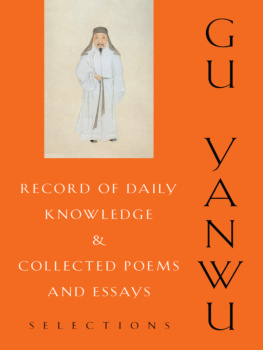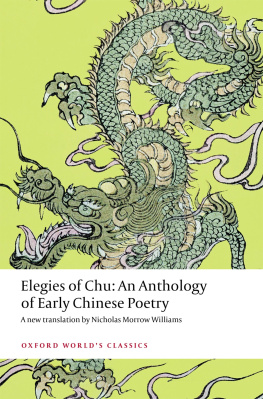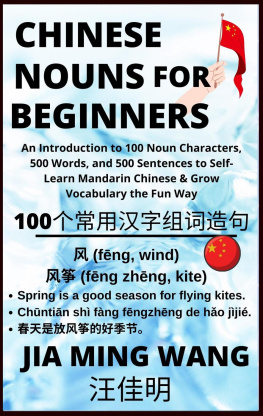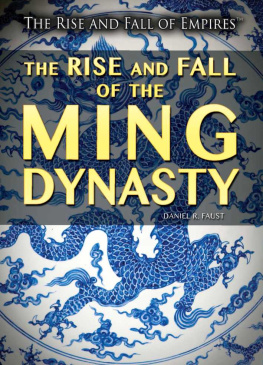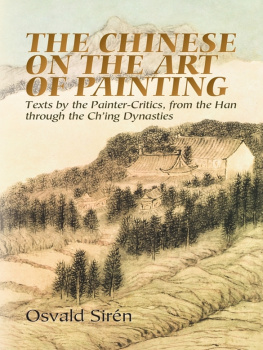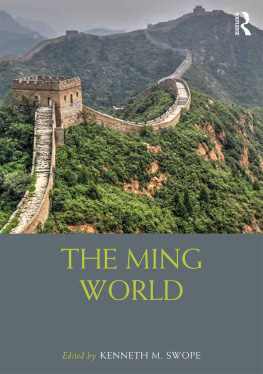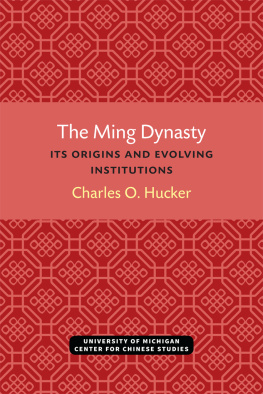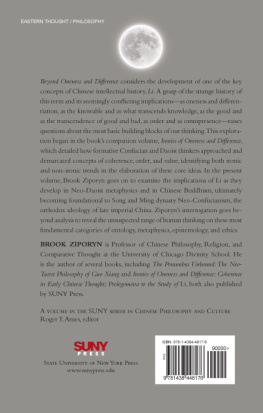Table of Contents
Record of Daily Knowledge and Collected Poems and Essays
Translations from the Asian Classics
TRANSLATIONS FROM THE ASIAN CLASSICS
Editorial Board
Wm. Theodore de Bary, Chair
Paul Anderer
Donald Keene
George A. Saliba
Haruo Shirane
Burton Watson
Wei Shang
Record of Daily Knowledge and Collected Poems and Essays
SELECTIONS
Gu Yanwu
Translated and edited by Ian Johnston
Columbia University Press
New York
Columbia University Press
Publishers Since 1893
New York Chichester, West Sussex
cup.columbia.edu
Copyright 2017 Columbia University Press
All rights reserved
E-ISBN 978-0-231-54267-8
Library of Congress Cataloging-in-Publication Data
Names: Gu, Yanwu, 16131682, author. | Johnston, Ian, 1939 | Gu, Yanwu, 16131682. Ri zhi lu. English. | Gu, Yanwu, 16131682.
Tinglin shiwenji.
English.
Title: Record of Daily Knowledge and Collected Poems and Essays : selections / Yanwu Gu ; translated and edited by Ian Johnston.
Description: New York : Columbia University Press, [2017] | Series: Translations from the Asian classics | Includes bibliographical references and index.
Identifiers: LCCN 2016003673 (print) | LCCN 2016023628 (ebook) | ISBN 9780231170482 (cloth : alk. paper) | ISBN 9780231542678 (electronic)
Subjects: LCSH: Gu, Yanwu, 16131682Political and social views. | Gu, Yanwu, 16131682Philosophy. | Learning and scholarshipChinaHistory17th centurySources. | Philosophy, ConfucianChinaHistory17th centurySources. | ChinaIntellectual life17th centurySources. | ChinaSocial life and customs17th centurySources. | ChinaHistoryMing dynasty, 1368-1644Sources. | ChinaHistoryQing dynasty, 16441912Sources.
Classification: LCC PL2716.A2 2017 (print) | LCC PL2716.A2 (ebook) | DDC 895.18/4809dc23
LC record available at https://lccn.loc.gov/2016003673
A Columbia University Press E-book.
CUP would be pleased to hear about your reading experience with this e-book at .
JACKET DESIGN: Jason Gabbert
To the memory of Agnes Stefanowska
(A. D. Syrokomla-Stefanowska, 19362008),
who contributed so much to Australian Sinology generally
and to my own work on Gu Yanwu specifically
TRAVELING THE HARD ROAD (4)
When water falls on level ground
it flows where it willeast, west, north, south.
A mans life too has its destiny.
How can I walk in sorrow, sit in sadness?
So I fill my cup and raise it,
and cease to sing Traveling the Hard Road.
A heart is not made of wood or stone.
How can it help but have feelings?
I remain silent and uncertain
and dare not speak.
Bao Zhao (414446)
CONTENTS
It is a considerable pleasure to be able to express my thanks to a number of people whose contributions have helped greatly in bringing this work to completion and endowing it with whatever merit it may have. First, I must mention Agnes Stefanowska, to whom this book is dedicated. She was the supervisor for my doctoral dissertation at Sydney University on Gu Yanwus Record of Daily Knowledge, done part-time between 1984 and 1991. She was, however, much more than a supervisorshe was a friend. Every Thursday during the years in question I would slip away (if possible) from my very demanding other life for a couple of hours to discuss my translations completed during the previous week but also to enjoy a cup of tea and talk of other things, both personal and general. I missed the meetings very much when the project came to an end and was deeply saddened when I learned of Agness death in 2008 after a short illness. By that time I had retired and moved to Tasmania, but we had kept in touch and in fact had plans to work jointly on the translations with a view to publication by Wild Peony Press, run by Agnes and her close friend Mabel Lee. Sadly, other things got in the way, as they do, and these plans were never realized.
I am also very grateful to my friend and colleague in other projects, Wang Ping, now at the University of New South Wales, who, coming to Australia from China via America, also did her doctoral work at Sydney under Agness supervision. We share the same deep respect and affection for Agnes. Ping has helped greatly by responding with invariably helpful and clarifying comments and suggestions on passages that I found difficult.
I am very indebted to the two reviewers of the original manuscript for Columbia. The first, Thomas Bartlett, a noted authority on Gu Yanwu, made very detailed comments on, and criticisms of, the translations, which helped significantly, as did his more general comments and earlier writings on Gu. The other, anonymous, reviewer made several important suggestions, which were acted upon with benefit.
I would also like to thank Jennifer Crewe of Columbia University Press for taking the project on in the first place, for her advice during the preparation of the manuscript, and especially for her tolerance in dealing with my sustained impulse to increase the number of translations, thus taking the book beyond what was deemed a desirable length. In reining in the burgeoning manuscript, she invoked the help of Victor Mair, who has been of great help to me in other matters in the past and whose specific suggestions for reduction were very helpful and largely followed. Susan Collis, my partner, has been of great assistance throughout and in many ways. She has, perforce, become very familiar with the writings of Gu Yanwu and has developed something of a liking for the man as he appears from his writingsas indeed I have. Finally, my friend Barry Hill, himself a noted poet, made very helpful specific suggestions on the translated poems.
To all these people I am very grateful, as I am to others, unnamed, who have helped more indirectly. I am particularly happy to be able to acknowledge here my debt to Agnes.
| CHC | The Cambridge History of China |
| CSJC | Congshu Jicheng |
| DMB | Dictionary of Ming Biography |
| ECCP | Eminent Chinese of the Ching Period |
| ECP | Encyclopedia of Chinese Philosophy |
| ECT | Early Chinese Texts |
| HCP | A History of Chinese Philosophy |
| ICCL | The Indiana Companion to Traditional Chinese Literature |
| LCC | The Chinese Classics |
| QSGW | Quan Shanggu Sandai Qin Han Sanguo Liuchao Wen |
| SB | A Sung Bibliography |
| SBBY | Sibu Beiyao |
| SBCK | Sibu Congkan |
| SKQS | Siku Quanshu and Siku Quanshu Zongmu Tiyao |
| SSJZS | Shisanjing Zhushu |
Gu Yanwu (Ku Yen-wu, 16131682) is a figure of considerable importance in Chinese intellectual history. His work was substantial and his influence significant, extending across several areas of scholarship and continuing into the twentieth century. However, for such a significant scholar the course of his life was unusual. He never held an official position or played any active part in politics, and yet his political and social philosophy was highly relevant. He never undertook any formal teaching or developed any coterie of followers. He only ever had one disciple, Pan Lei (16461708), to whom we must be grateful for his role in preserving Gus work. Nor did he follow the path of the more or less eremitic scholar, unlike his contemporary Wang Fuzhi (16191692), who, after a brief flirtation with Ming restoration (like Gu), withdrew to his native place to study and write for the remaining forty or so years of his life. Instead, Gu became an itinerant, always on the road, traveling widely and availing himself of the hospitality (and libraries) of a number of friends. Quite how he managed to achieve so much in terms of scholarship while following such a path is something of a mystery, particularly when considering some of the major vicissitudes that marked his travels. So he remained on the road and somewhat elusive for the last thirty-odd years of his lifehis friend Gui Zhuang (16131673) likened him to a wily rabbit with three burrowswhile Wang Fuzhi was working away diligently in his own home. Even Gus death was travel related. He fell off his horse while setting off on yet another journey and died some days later as a consequence of the fall.

